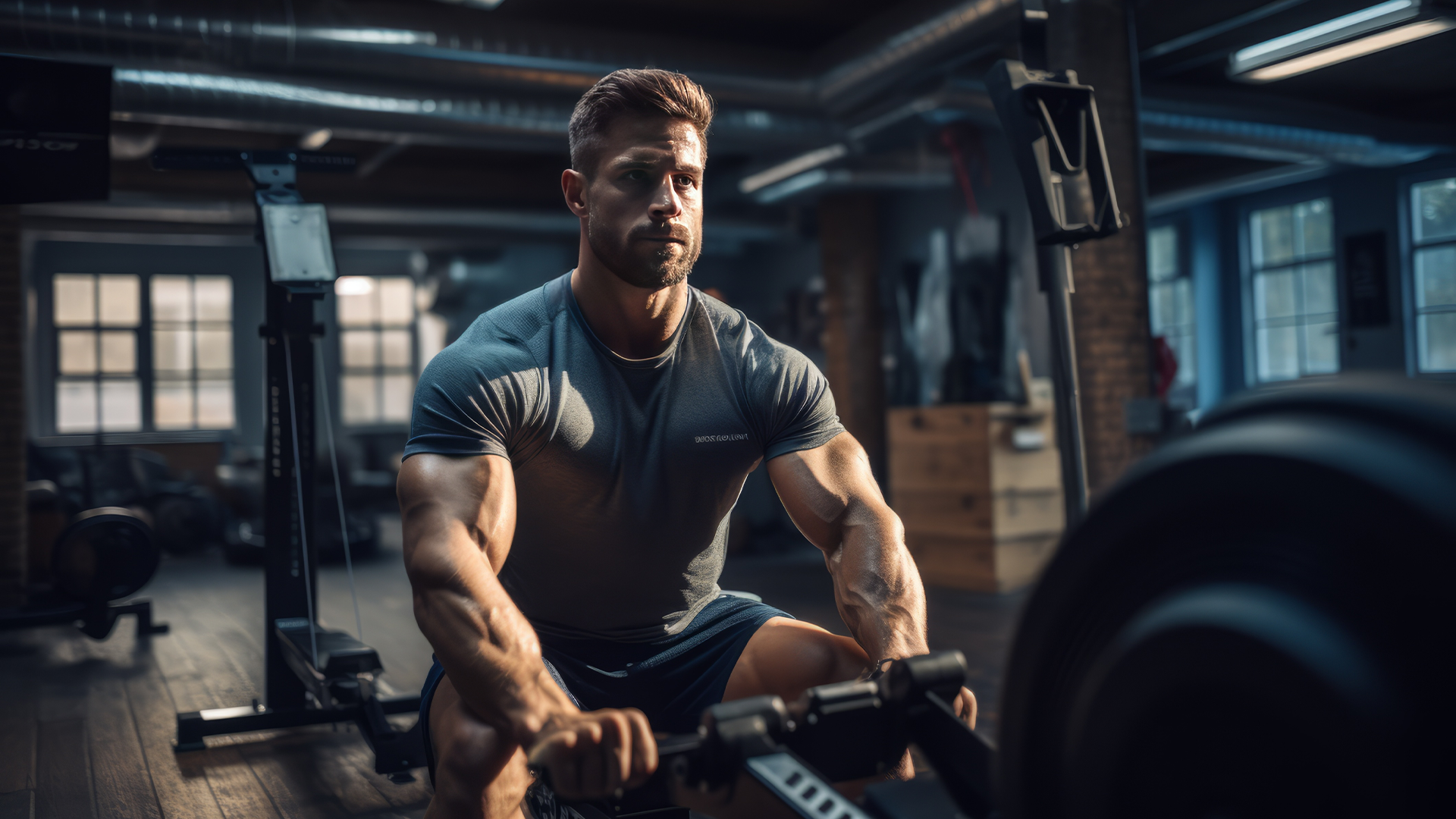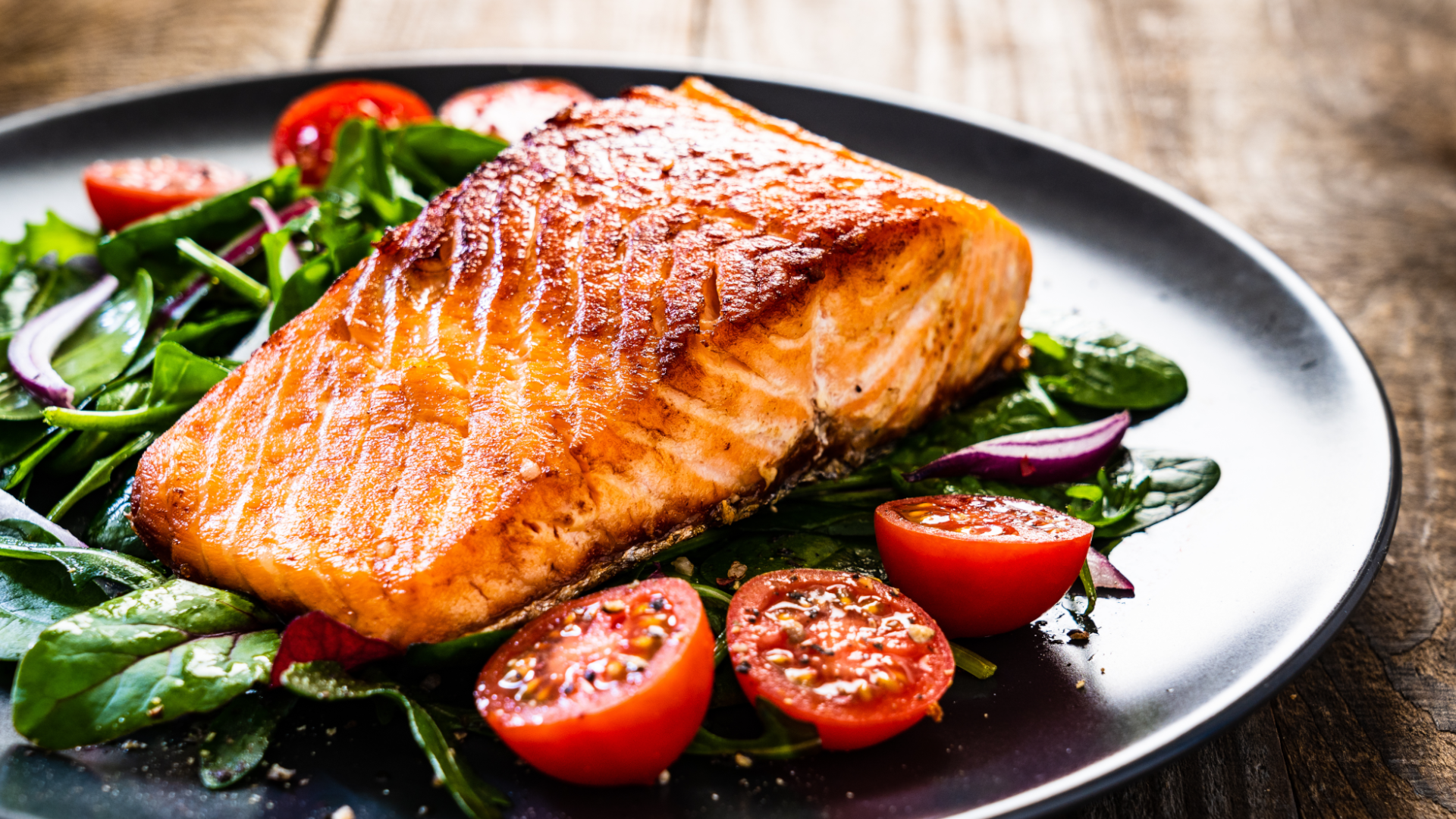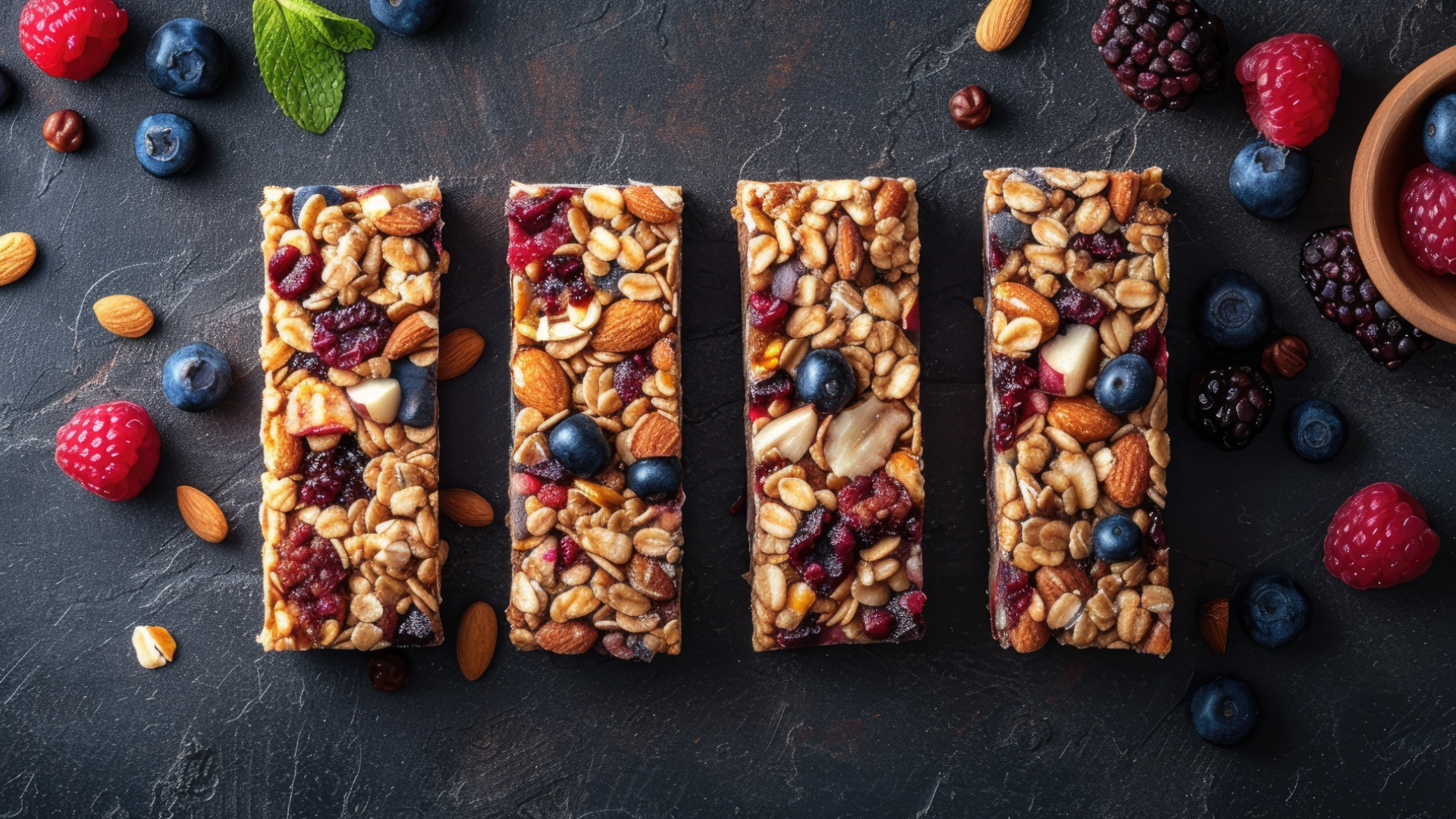Grab your cheat sheet |
No matter how often you go to the gym, building muscle mass can feel like a struggle.
If you’re working out consistently but find you are finding it tough to gain muscle or lose weight, the answer could be in your diet.
Getting enough protein is essential for a healthy body and a high protein diet is key for anyone who wants to build muscle mass, shed body fat, and go for those big gains.
So, how much protein do we need, exactly? Let’s find out.
What is muscle protein synthesis?
Before we dive into the numbers, let's lay down the groundwork by understanding muscle protein synthesis.
Why? Well, because, this intricate process is the cornerstone of muscle growth, involving the creation of new muscle fibres to replace damaged ones.
Essential amino acids, the building blocks of proteins, play a pivotal role in muscle protein synthesis. Our body can't create essential amino acids on its own, so we have to get them in our diet.
In other words: To get the gains you deserve—you have to eat plenty of protein.
What should your protein intake be if you want to build muscle?
So, how much protein is enough to fuel muscle growth? The general consensus among the experts is that for those aiming to build muscle, protein intake should fall within the range of 1.5 to 2.0 grams of protein per kilogram of body weight.
FYI: For someone weighing 70 kilograms, for example, this translates to a daily protein intake of 84 to 140 grams.

But, it's essential to note that protein requirements can vary based on factors like age, gender, activity level, and the intensity of your workouts.
Plus, the timing of your protein consumption matters. If you try to pack all of your protein into one meal, your body will struggle to use it all effectively. So, eating a consistent amount of your protein throughout the day—including pre and post-workout fuel up—will optimise muscle protein synthesis and repair.
What impacts how much protein you need?
As we said, there are some factors that will impact how much protein you need. While the general 1.5 to 2.0 grams of protein per kilogram of body weight rule is an excellent guide—building muscle isn’t exactly a one-size-fits-all situation.
So, what things do affect how much protein you need to go for those epic gains? Let’s take a quick look.
Age

If you’re 45 or over, you’ll need slightly less protein (around 1 to 1.2 grams of protein per kilogram of body weight rather than 1.2 to 1.4 grams of body weight).
But, to build lean muscle, your body needs to work that little bit harder. So, to build muscle, experts advise that you should eat around 1.6 to 2 grams of protein per kilogram of body weight.
Training level
There’s no doubt that you train hard. No doubt at all. But, your ideal protein intake will also vary depending on the sheer intensity—and frequency—of your diet.
If you’re going for that almost superhuman Eddie Hall strongman level of strength (and you have the training regime to match), you’ll need more protein for growth and repair (around 2-plus grams of protein per kilo of body weight).
But, if you’re training for general fitness and lean muscle, aiming for around 1.2 to 1.6 grams of protein per kilogram of body weight will do the trick.
Read: Our essential guide on plant vs. animal protein to discover which type will best suit your training needs.
Does eating a lot of protein help you lose body weight?
Upping your protein intake consistently will help you with your weight management in a number of ways. Let’s explore:

- Protein helps us feel fuller so we are less likely to overeat
- A high protein diet helps tackle cravings
- More protein plus exercise leads to a higher muscle mass, which will give your metabolism a big boost
- Protein-rich foods have a greater ‘thermic effect’ meaning we expend more calories in digesting them when compared to other foods
So if weight loss, or maintaining a lean body mass is your ultimate goal, pack in those healthy sources of protein every day. Your body will thank you for it.
Best high-protein foods for building muscle
So, what should be eating to help you eat more protein and build muscle mass? There are plenty of healthy options and we’re going to look at them right now.

Lean meats
Chicken, turkey, lean beef, and pork are excellent sources of high-quality protein. The average chicken breast contains around 50 grams of protein. That alone will get many people pretty close to their target.
Fish
Fatty fish like salmon, tuna, and mackerel are not only rich in protein but also offer omega-3 fatty acids, which have anti-inflammatory properties and support overall health.
Eggs
You can’t beat a good egg. Actually, you can (sorry, bad joke). Yes, eggs contain plenty of protein along with other healthy nutrients.
Dairy
Greek yoghurt, cottage cheese, and milk are rich in protein and contain casein, a slow-digesting protein that provides a steady supply of amino acids to your muscles.
Plant-based proteins
If you prefer plant-based options, legumes (beans, lentils, chickpeas), tofu, tempeh, and quinoa are great choices. These foods offer a mix of protein and fibre, supporting both muscle growth and digestion.
Nuts and seeds
Almonds, peanuts, chia seeds, and pumpkin seeds are a great source of protein and they also provide healthy fats that support your body's overall functions.
Protein shakes
High in protein, low in calories, a daily protein shake such as Crazy Nutrition is one of the easiest ways to ensure you are getting enough protein without consuming too many calories. A handy way of going for those colossal gains.
The risks of not getting enough protein

By now, you’ll know how and why getting enough protein will help you manage your weight and build muscle mass. But, what are the risks of not getting enough of these essential building blocks in your diet?
Neglecting protein comes with its fair share of health issues—including:
- Losing strength and muscle mass
- Weakening of the nails, hair, and bones
- A fatty liver
- An increased risk of infections
- Anaemia
As you can see, none of these risks are, well…worth the risks. So, make sure you get plenty of quality protein in your diet. Our guide to bulking on a budget will give you the tips and inspiration you need to succeed.
Getting your protein intake right
Striking the right balance between resistance training, calorie intake, and protein intake is key to lean muscle growth.
Whether you're lifting weights, doing bodyweight exercises, or practising yoga, your muscles rely on the nourishment you provide. But, if you’re keen to lose body weight, you may be worried about eating more high protein foods.
If this is the case, we recommend a high-quality, low-calorie protein shake like Crazy Nutrition.
Each serving has 24 grams of natural, non-GMO protein—and only 110 calories or less (depending on your choice of flavour).
Tailor your protein intake to your body's needs, goals, and preferences. By embracing the science, understanding the numbers, and focusing on high-protein foods, you’ll get to where you need to be. Go get it.



